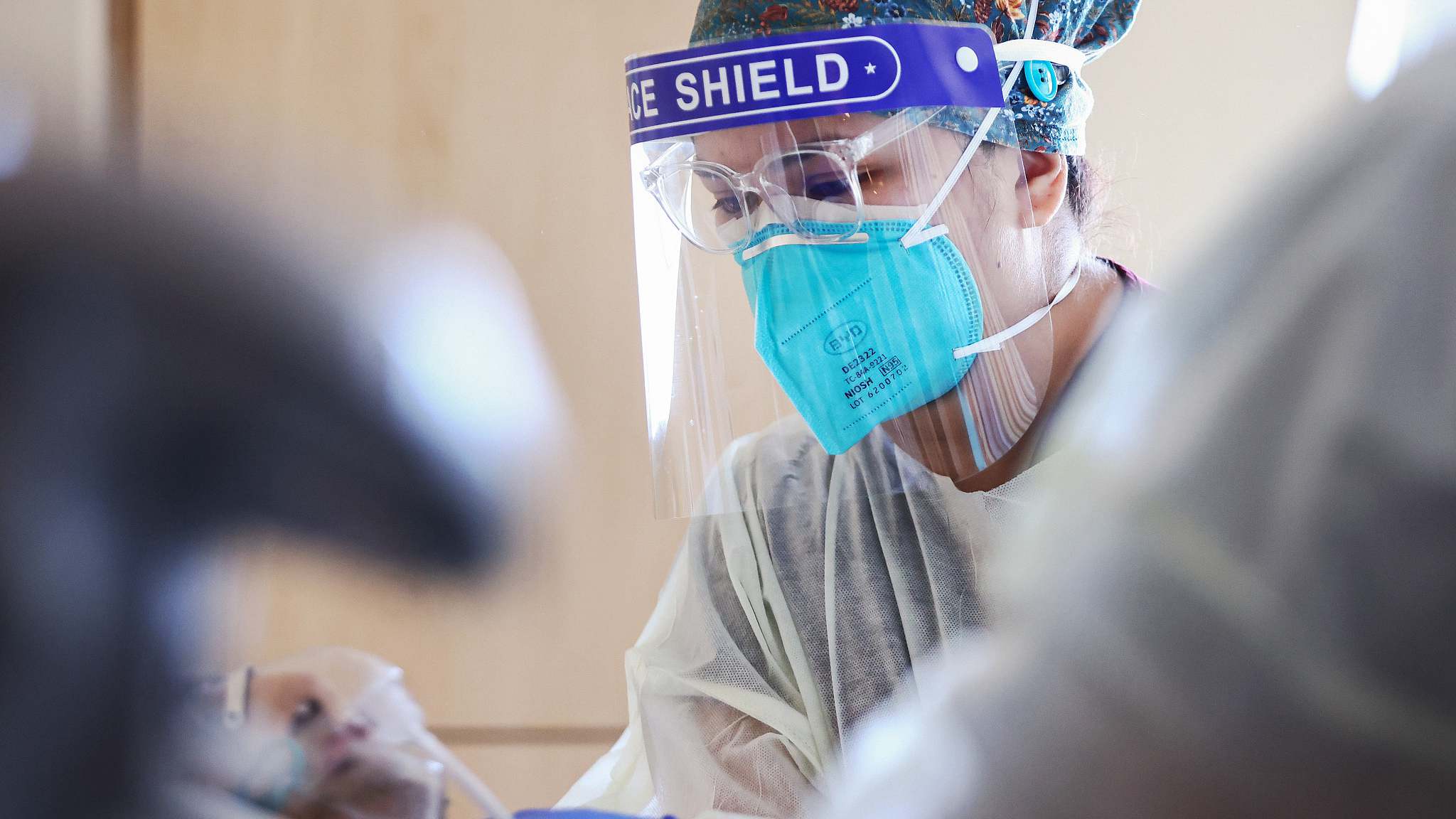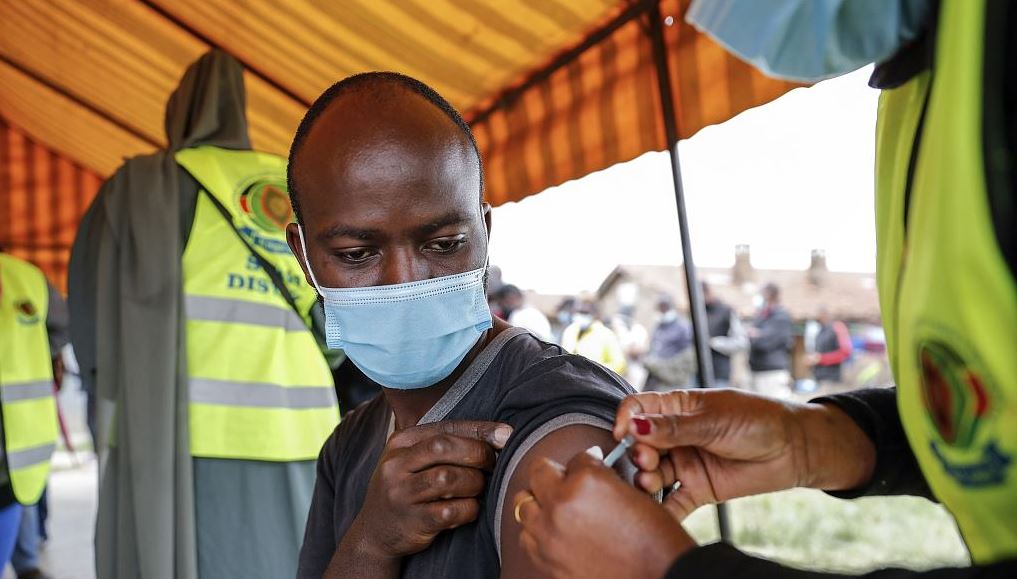
A nurse cares for a COVID-19 patient in the improvised COVID-19 unit at Providence Holy Cross Medical Center in the Mission Hills neighborhood in Los Angeles, California, U.S., July 30, 2021. /CFP
A nurse cares for a COVID-19 patient in the improvised COVID-19 unit at Providence Holy Cross Medical Center in the Mission Hills neighborhood in Los Angeles, California, U.S., July 30, 2021. /CFP
Editor's note: Bradley Blankenship is a Prague-based American journalist, political analyst and freelance reporter. The article reflects the author's opinions and not necessarily the views of CGTN.
The global death toll from COVID-19 surpassed five million on November 1, less than two years after it was first detected and even less time since the disease was declared a pandemic by the World Health Organization. Rich and poor countries alike have been ravaged by the disease, showing that societies across the globe are faced with serious questions.
One of the most pressing questions is equity and how global society can survive without it. As was brought up during the recent Group of 20 (G20) leaders summit, only 3.1 percent of the people in low-income countries have received at least one dose of a COVID-19 vaccine. Africa is uniquely hit by this inequity, with only five percent of the continent's population of 1.3 billion fully vaccinated.
On the other hand, the more industrialized G20 countries have used an estimated 82 percent of the world's vaccines yet only represent about 62 percent of the global population. But even minority groups in some of these highly-developed countries, like Black and Hispanic people in the United States, who are more likely to have less access to health care than white people, have suffered worse health outcomes during the pandemic.
As has been stated countless times by health experts across the globe, including WHO leaders, vaccine inequity will inevitably prolong the pandemic by keeping the disease circulating at higher volumes for longer. Rich countries must prioritize vaccine distribution to poorer countries and make good on the promises they made earlier this year.
Richer countries that have more vaccinated populations also face the question of how to turn the deadly and highly transmissible virus into a manageable issue.
Middle and high-income countries, like the United States and those in the European Union, account for nearly half of all reported COVID-19 deaths but have about one-eighth of the world's population. That's because these countries largely failed to contain massive COVID-19 outbreaks, leaving their populations vulnerable and health care systems inundated with patients.

A Kenyan man receives a dose of the AstraZeneca coronavirus vaccine at the Makongeni Estate in Nairobi, Kenya, August 14, 2021. /CFP
A Kenyan man receives a dose of the AstraZeneca coronavirus vaccine at the Makongeni Estate in Nairobi, Kenya, August 14, 2021. /CFP
So widespread has the disease become that these countries are pursuing endemicity because "zero COVID" is most certainly untenable at this point, especially with the emergence of the more transmissible Delta variant, which raises fundamental questions about how life will change to accept this new normal.
A recent article by McKinsey & Company discusses the "whole society" approaches that need to be taken, with the outlook very unclear as to what form these will take. Mainly, these countries will have to shift their thinking from viewing COVID-19 as a one-time threat and instead look at it as an enduring threat that needs to be carefully managed.
It means that countries will have to define what is an acceptable disease burden, which will then determine the parameters for new daily life. Then they will need the means to track progress against this standard, new disease-management protocols and practices to slow transmission.
As an interesting comparison, the authors discuss how road safety – things like seat belts, airbags and impaired-driving laws – help limit road death. While each road death is a tragedy, it does not stop people from calculated risks by buckling up and hitting the road. The same basic principle applies to disease management.
But the definition of acceptable risks will vary significantly between regions and countries. For example, China has committed to a "zero-tolerance" policy with COVID-19, while most other countries are trying to learn to live with it.
For those willing to accept endemic COVID-19, their definition may change as new information emerges about its long-term effects, with new research pointing to brain abnormalities linked to Alzheimer's, markers for long-term kidney damage and potential infertility.
As for the other three principles, which are tracking progress, disease-management protocols and practices to slow transmission, these will also vary because countries are tracking data differently and populations vary in how willing they are to accept mitigation strategies, such as social distancing, mask-wearing and vaccination.
Each country will have to decide for itself what its new normal will look like and what they're willing to do to achieve that.
(If you want to contribute and have specific expertise, please contact us at opinions@cgtn.com.)

